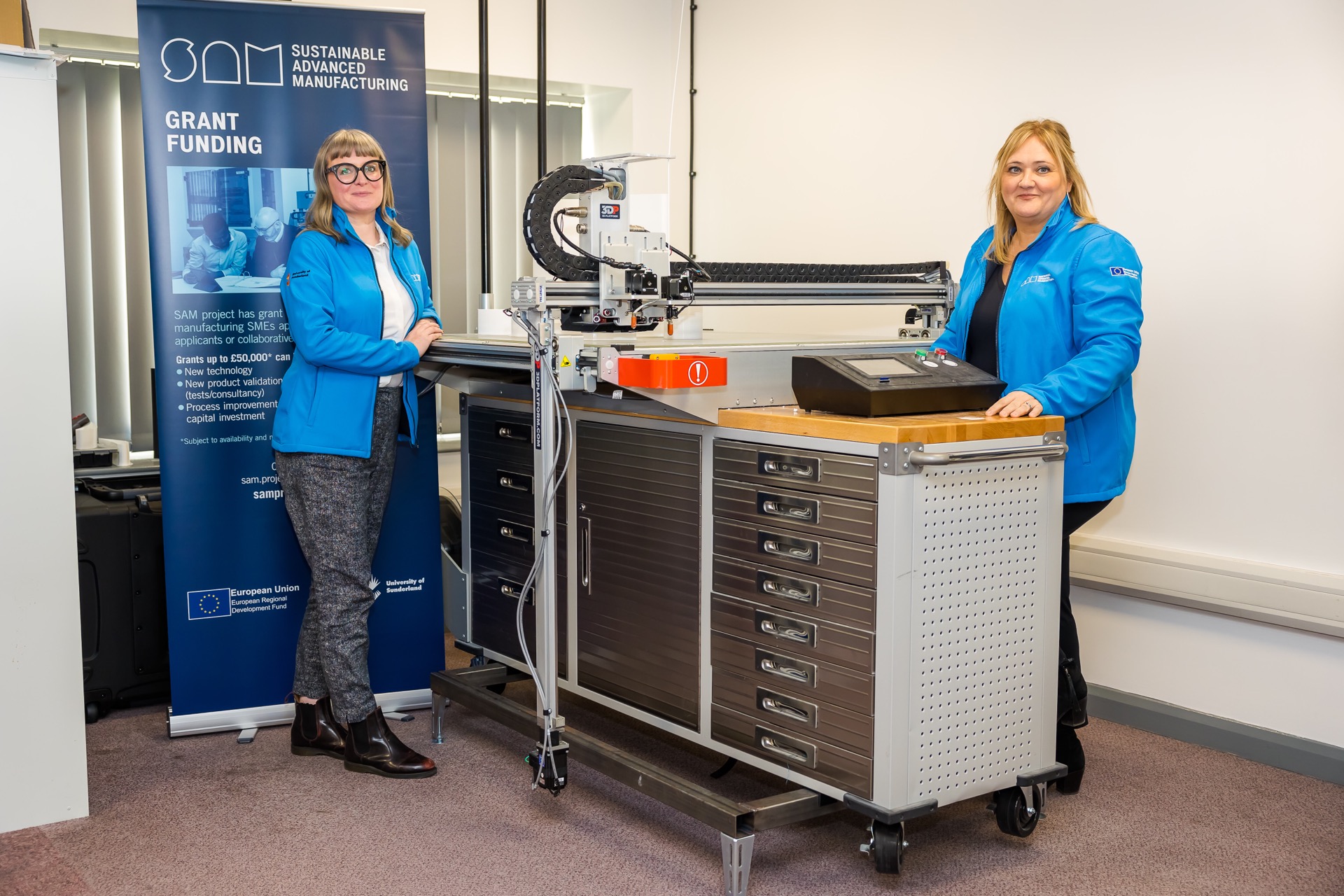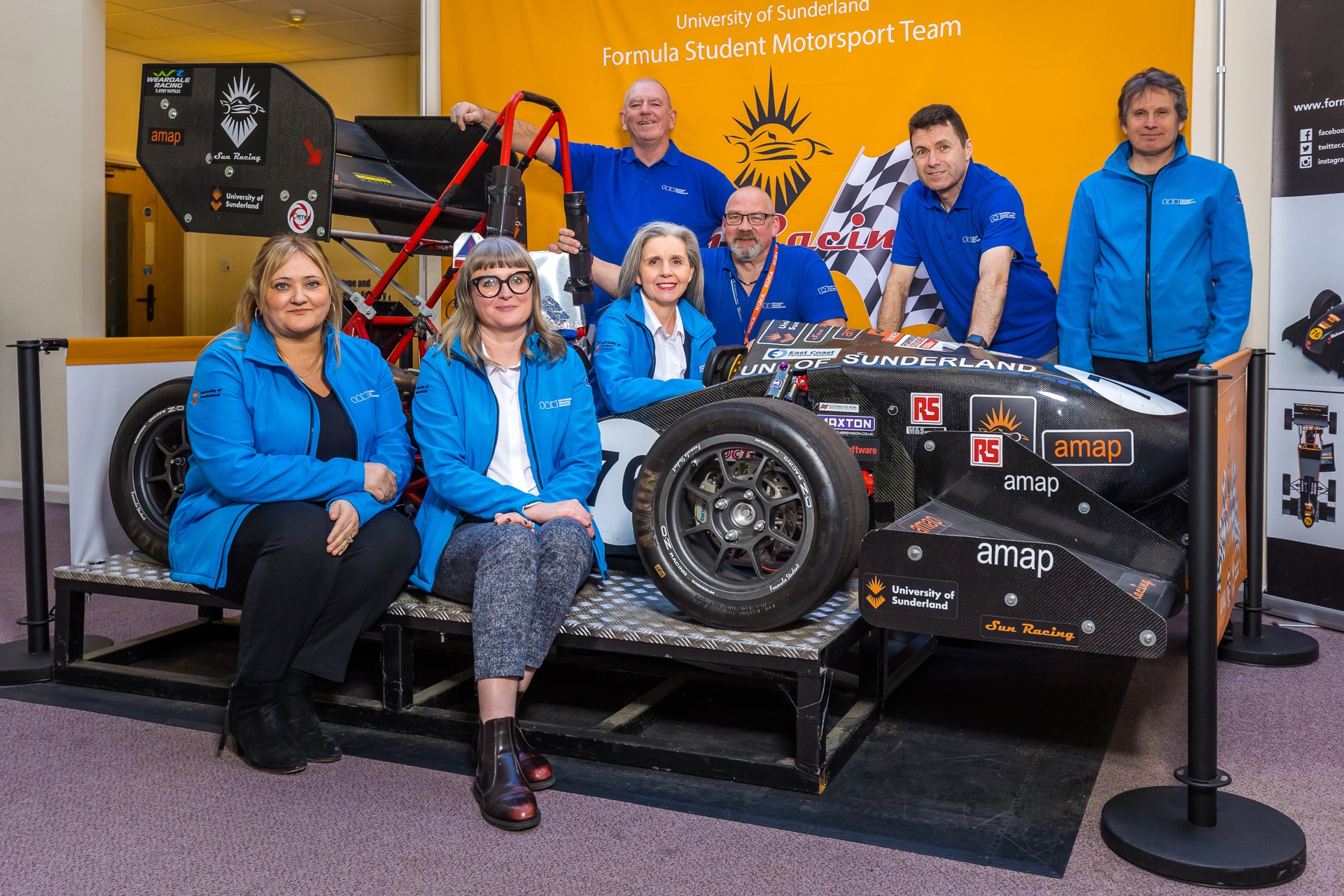Since 2018, the SAM Project has helped over 200 North East businesses become more productive and sustainable by supporting projects that enhance products, processes and technology.
Central to this success has been its incredibly popular Grant Funding scheme, providing matched-funding grants of up to £50,000* for manufacturing projects that support the growth of new products and processes.
This encompasses funding towards new to firm production technology; new product validation (tests/ consultancy); process improvement capital investment; structure to support research and development implementation; external consultancy on a time limited basis linked to a manufacturing/ production project and other product and process development costs.
During the first phase of the SAM Project, spanning 2018 – 2020, this saw the Project distribute over £1million in matched-funding grants, helping add £41.7 million in GVA to the North East businesses that engaged with the programme, creating 290 direct jobs and leading to a 30.1% rise in sales.
And the team at SAM are confident that, following its three year extension to 2023, it will have an even larger impact on the sector going forward, after it saw its grant pot double in size – by a further £1 million – and its technical team at the University of Sunderland continue to grow.
Speaking about the grant funding, Claire Darling-Cooper, compliance officer at the SAM Project, said: “The Grant Funding scheme proved incredibly popular with the region’s SME manufacturing base during phase one of the project, so we were delighted when we received confirmation that it had been extended for a further two years until 2023.
“Not only did it help create jobs, but it also helped safeguard many more and as we look to re-emerge from the pandemic, business support initiatives such as this will be key to ensuring the region’s manufacturers have all the tools they need to compete on the global stage and continue to innovate and grow.
The grants are restricted for small to medium sized (SME) business in the North East Local Enterprise (LEP) area – spanning Northumberland, County Durham and Tyne & Wear – and are also accompanied by 10-15 days’ worth of fully-funded technical support from the SAM Project’s team of eight manufacturing experts, who combined, boast over 250 years’ experience working across the industry in a number of senior roles.
Claire added: “We know how much of a leap of faith it can be when investing in new capital equipment, which is why we provide the technical expertise required to really understand the technology and all of its pros and cons, ensuring we help de-risk each and every investment we underpin.”
One such company to benefit from the SAM Project’s Capital Grant scheme is Vixen Surface Treatments Ltd, a market-leading manufacturer of industrial wet and dry blast cleaning cabinets.
After engaging with the SAM Project, the company was able to receive an in-depth demonstration of how 3D CAD visualisation software could help improve both its design and sales processes, as well as securing the funding required to invest in state-of-the-art software from Solidworks to implement the technology into its business model.
Aidan Mallon, managing director of Vixen Surface Treatments, said: “The first project we completed after the investment saw us test the Solidworks software on a live project that we won. It was a €500,000 export order from a German aerospace company and I genuinely believe we wouldn’t have won that contract without including it in our offer. It really adds credibility and professionalism to our proposals.
“As a manufacturer you must explore every avenue possible to grow your business, be it investing in new equipment or tapping into expertise and funding – and business support from organisations such as SAM is vital to helping SMEs move forward.
“We’d just extended our factory prior to approaching SAM and wanted to move into Solidworks. The grant helped us secure the funding needed to do that and accelerated our growth, helping us gain a competitive advantage by massively increasing the quality of service we’re able to offer clients.”
Another company to benefit from the grant scheme is Chester-le-Street architectural metalwork specialist, Steelcraft Ltd. Since engaging with the SAM Project and securing a five-figure funding grant, the company has expanded its product offering and launched a new brand, Forjj, allowing it to diversify and sell its products directly to consumers across the globe.
“The team at SAM were absolutely amazing,” Liam Armstrong, operations manager at Steelcraft said. “Prior to engaging with them, our factory hadn’t changed in 20 years and we were struggling to see how we could scale up our operations while keeping costs and disruption at an absolute minimum.
“Using simulation software, they were able to create an identical, computerised model of our workshop and, working closely with our production manager, identify which machines and processes could be altered and moved to make space for the new machinery and improved workflow.
“We’d never have even thought about using digital twin software to visualise and improve our shop floor and – as a family-business – we could never have accessed something like this without the support of SAM.”
The grants are accessible by all manufacturing SMEs, who can also still engage separately in a technical project with SAM (this can often support or identify the need for a grant application or helps to specify their precise needs and focus on the benefit and returns). The grant award is 25% matched funding available to those in Tyne & Wear and Northumberland and 35% for those in County Durham. The grants can also be used to support the purchase of second-hand equipment, as well as brand new machinery kit and software, and can even be used for specialist services or testing needs that may be holding a company back.
Claire added: “Vixen and Steelcraft are just two of scores of success stories we’ve recorded through the Project’s journey so far and are evident of the impact this support can have.
“Not only do the grants help break down the barriers to investing in new technology but they also help eliminate other financial inhibitors to driving strategic development of both product and process.
“The only drawback for us is that we only have £1 million to give away. While it may sound like a lot, the first phase of the SAM Project proved so popular that the grant pot was empty well in advance of the project’s end date, therefore we’d recommend any manufacturer reading this who thinks they may be eligible to get in touch with us and find out more.”
Interested in finding out more about the SAM Capital Grant scheme? Visit: https://samprojectuos.co.uk/grant-support-helps-sustain-growth-for-vixen/ or email: sam.project@sunderland.ac.uk


